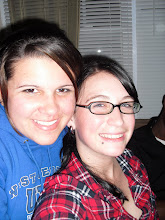When Death Came
Adam Zagajewski
I wasn't with you when death came.
The municipal hospital was your last home:
white room, cobwebs, chipped
paint, a jar of cherry preserves,
an old issue of a rotogravure, a tin fork
with a tine gone, two glasses.
In the next bed, a tailor with cancer.
You were so old the doctors thought
you'd hardly weight
in the numbers of death.
So old that the children on your street
thought you another century,
an empire slouching on the broken sidewalk.
As death came, though, youth came:
you suddenly spoke the language of childhood,
the white screen between you and the living
was the wing of a glider.
The intravenous drip muttered, a pigeon
impatiently paced on the sill.
You were taking all of yourself
from that dreary place into your death:
the dandy of eighteen, the mature thirty-year-old,
the German teacher with no truck
for indolent students, the pensioner
with his long daily walk
that may at the end have measured
the distance from earth
to heaven.
You'd regenerated yourself
for your death.
In the hall, the muffled laughter
of nurses; at the window,
sparrows fighting for crumbs.
- This piece uses a lot of enjambment.
- The repetition of phrases such as "when death came" and "so old that" emphasize certain points within the piece.
- It's interesting that he chose not to capitalize Heaven. I wonder if it was a personal choice or if he just didn't think about it.
- The idea from the first line of the narrator being absent from the death is reiterated at the end when he mentions only nurses and sparrows.
- The actions of the nurses (laughing) and sparrows (eating) reinforce the previous idea of the old man not weighting in the numbers of death.
Subscribe to:
Post Comments (Atom)

No comments:
Post a Comment